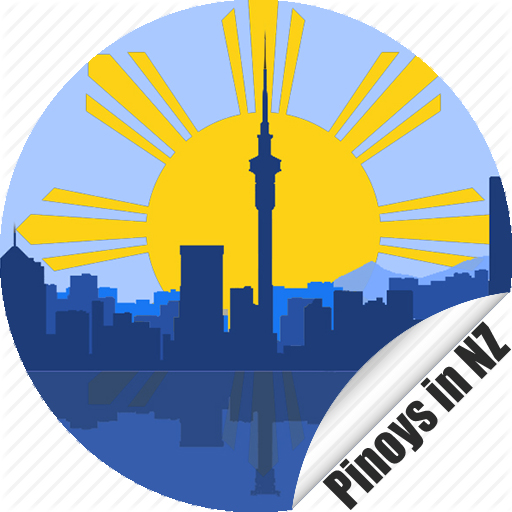Introduction
If you’re looking for review materials for the IQN Theoretical Exam, it’s easy to get overwhelmed with the amount of nursing information available online. We understand this challenge, which is why we’ve created this concise guide specifically for internationally qualified nurses preparing for their theoretical examination in New Zealand. Share this with someone you know!
Who is This Guide For?
- Internationally Qualified Nurses: Those looking to work and live in New Zealand.
- Nurses already working in New Zealand who are pursuing their NZRN registration.
Discover a focused and practical approach to your exam preparation with our tailored guide, designed to help you reach your goals with confidence.
Preparing for the Examination
To prepare for your examination, the Nursing Council of New Zealand recommends familiarizing yourself with the following New Zealand-focused resources. As an experienced Registered Nurse, your basic foundation is strong, and holding registration from your home country is recognized:
Key Resources:
- Competencies for Registered Nurses
- Code of Conduct for Nurses
- Code of Health and Disability Services Consumers’ Rights
Focused Study Topics
Here are the essential topics you should focus on, along with a brief study plan to help you get started:
1. Legal & Ethical Responsibilities
- Importance of ethical practice and understanding legal obligations.
- Review case studies to understand practical applications.
2. Tikanga Maori
- Understanding Maori culture and health practices.
- Respecting and integrating cultural values in nursing care.
3. Nursing Tools
- Familiarization with commonly used nursing tools and their applications.
- Practice scenarios involving tool usage.
4. Nursing Theories and Models of Care
- Study prominent nursing theories and their theorists.
- Apply models of care specific to New Zealand’s healthcare system.
5. Primary Health Care in New Zealand
- Structure of New Zealand’s primary healthcare system.
- Role of nurses in primary health care.
6. Normal Values and Physiology and Anatomy
- Review normal physiological values.
- Focus on key anatomical and physiological systems relevant to nursing practice.
7. Maternal and Paediatric Health
- Understanding maternal health practices and guidelines.
- Pediatric nursing care, including growth and development milestones.
8. Medical and Surgical Nursing
- Common medical conditions and surgical procedures.
- Preoperative and postoperative care.
9. Mental Health
- Key mental health conditions and nursing interventions.
- Therapeutic communication and care plans.
10. Trauma & Emergency
- Emergency nursing protocols and triage.
- Managing trauma patients effectively.
11. Medications
- Medication administration principles and pharmacology.
- Study classifications of drugs and their nursing considerations.
Quick Study Plan
Here’s a structured study plan to guide your preparation journey:
Day 1-2: Legal and Ethical Responsibilities & Tikanga Maori
- Review the Code of Conduct and legal obligations.
- Study Maori health practices and cultural competencies.
Day 3-4: Nursing Tools and Theories
- Refresh your knowledge on nursing tools with practical scenarios.
- Study prominent nursing theories and their applications.
Day 5-6: Models of Care and Primary Healthcare in New Zealand
- Understand different models of care.
- Review the structure and roles in New Zealand’s primary healthcare system.
Day 7-8: Normal Values, Physiology, and Anatomy
- Memorize normal values for vital signs and lab results.
- Focus on key physiological processes and anatomical structures.
Day 9-10: Maternal and Paediatric Health
- Study guidelines for maternal health.
- Review pediatric nursing care and development milestones.
Day 11-12: Medical and Surgical Nursing
- Go through common medical conditions and surgical procedures.
- Review care plans for preoperative and postoperative patients.
Day 13: Mental Health
- Focus on mental health conditions and interventions.
- Practice therapeutic communication techniques.
Day 14: Trauma & Emergency
- Study emergency protocols and trauma management.
- Practice emergency scenarios and triage.
Day 15: Medications
- Review pharmacology principles and drug classifications.
- Understand nursing considerations for medication administration.
Additional Resources and Community Support
We receive many messages asking for review materials, and we understand the overwhelm that comes with the vast resources available online. To address this, we spent months carefully curating and organizing these materials into a single, comprehensive package.
We stared Nurses Success Academy Online Learning Platform https://nursessuccess.com/
- Centralized Resources: We’ve arranged all the essential materials for you, making it easier to access everything you need in one place.
- Interactive Learning: Active learning is crucial to your success. Our platform includes interactive quizzes, flashcards, and practical application scenarios.
- Community Support: Join our community and meet live via Zoom. Interact with fellow nurses, ask questions, and get immediate feedback.
Pre-Assessment Exam and Courses
- Pre-Assessment Exam: Take our Pre-Assessment Exam to gauge your current level of knowledge and identify areas for improvement.
- Free and Paid Courses: Access a range of free and paid courses tailored specifically for internationally qualified nurses preparing for the New Zealand theoretical examination.
Tips for Effective Studying
- Active Recall: Use flashcards and quizzes to test your knowledge regularly.
- Spaced Repetition: Review material at spaced intervals to enhance retention.
- Practice Questions: Complete practice exams to familiarize yourself with the format and types of questions.
- Study Groups: Join or form study groups to discuss and reinforce learning.
- Mindfulness: Incorporate mindfulness techniques to manage stress and stay focused.
Conclusion
This study guide is designed to streamline your preparation, helping you focus on the most important topics and resources.
We believe in giving you 10x value and supporting you every step of the way.
Ready to take the next step?
Download our 120 Sample Questions and join the Nurses Success Academy to access even more resources and personalized coaching.
120 Sample IQN Theoretical Questions
Share this guide with someone you know and help them on their journey to success!


